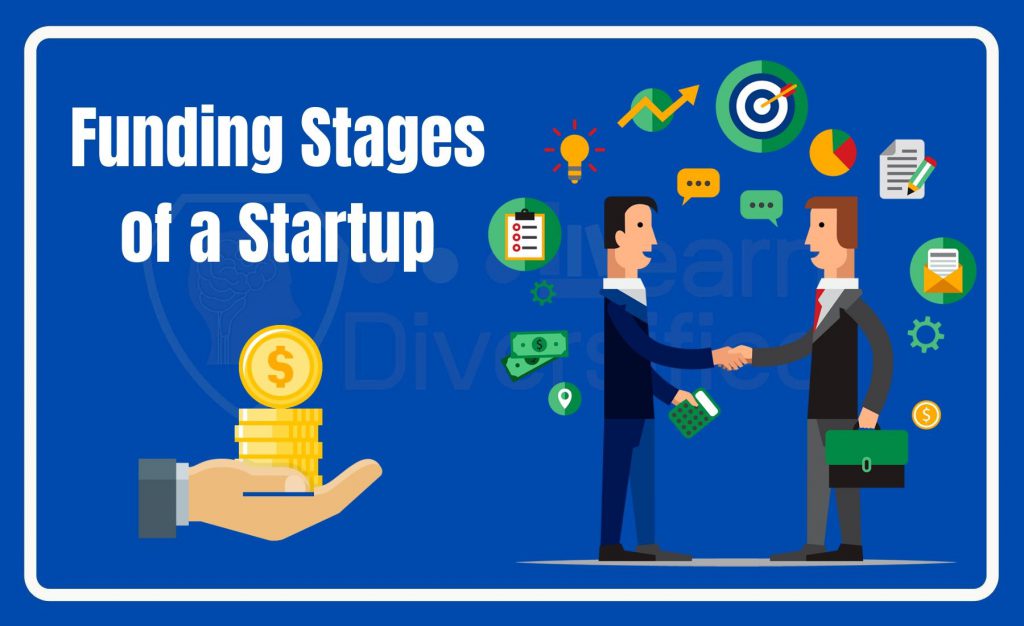Have you ever thought of starting your own business?
Do you have a business idea, but worried about the funding?
Money is the backbone and bloodline of any business. Funding is the fuel which propels the growth and expansion of your Startup. Great ideas with good financial backing leads to a successful business!
Get to know about the various stages of Startup funding to make your dream come true!
Pre-seed funding
Pre-seed funding is the earliest stage of Startup funding. As an entrepreneur, you should first determine the capital requirements to run your business. This is a stage where you will explore the feasibility of your business service or product.
Pre-seed funding is mostly not considered as a separate stage, rather it is considered as a prime stage of Seed funding. Funds for the business are usually raised by the founder itself through his/her sources like family, friends or relatives.
It is also known as Self-funding or Bootstrapping stage.
Seed Funding
As the name suggests, this is the seed (capital) that will help your company grow from the planting stage. Seed funding stage is where your Startup takes baby steps to transform your ideas into a successful business.
At this stage, funds are raised through family, friends, relatives, Crowdfunding or Angel inventors. Crowdfunding is raising a small amount of capital from a large number of people for your Startup. There are many Crowdfunding platforms like Kickstarter, GoFundMe, Indiegogo, Crowdfunder, etc which helps you in raising capital for your Startup.
Angel Investor is a High Net Worth individual who provides capital for your Startup in exchange for convertible debt or ownership equity. Angel investors are mostly business owners who have years of experience working with startups. In addition to providing Capital, they will also share their expertise for the benefit of your Startup.
The funds raised at this stage will be mainly used for Market Research and Product Development.
Seed funding is a crucial stage for all Startups. If you don’t scale up required funds, you may fail to establish the business and end up closing.
Venture Capital Financing or Series Funding
Venture Capital financing is the funding done by Venture Capital firms. These firms invest in emerging Startups which have high growth potential.
It is a private equity capital which is provided to Startups through multiple rounds of funding in Series A, B, C, D and E. In this, Series D and E are not very prominent.
Series A Funding
Series A funding is the first stage of Venture Capital financing. This Series funding will be done when your Startup has set foot in the market with its product or services. At this stage, your Startup should have your own customer base with increasing revenues.
To develop further, you will have to come up with new business models or new ideas or competitive strategies to further capture markets. This will help you convince the venture capitalists to invest as per your fund requirements.
A prominent 30-10-2 rule is followed by many Startup owners at this stage. The rule implies that you should look out for 30 potential investors for your Startup, out of which 10 of them will probably be interested in your business, out of which 2 of them will actually invest in your Startup.
Series B Funding
Series B funding takes place when your Startup has already proven your investors by creating a substantial user base with increasing demand for your products or services.
Series B funding is for scaling up your business to a larger extent. The potential investors in this stage are Venture Capitalists and Late-Stage Venture Capitalists.
The funds acquired through this round are mostly channelled towards Improving the Infrastructure, Hiring more employees and in Increasing the market share.
Series C Funding
After the Series B funding, your Startup will be expanding in all aspects. This implies that you are reaping success, which will make your investors happy.
Series C funding is used for further expansion of your business by reaching new markets (can also be International) or by acquiring similar startups to speed up your growth.
Apart from Venture Capitalists, you can also get Investments through Private Equity firms, Investment Banks etc at this stage.
Private Equity firms are Investment Management companies which provide Capital to companies that are not publicly traded. Investment Banks help with the creation of capital to other Companies by underwriting new Debt and Equity securities.
The Valuation of your Startup increases significantly after this stage. Series C funding is mostly the last stage of Venture Capital financing before going Public. However, some Startups go on further with Series D and Series E funding rounds as well.
Series D Funding
Many Companies usually exit after Series C funding, but sometimes few Companies move on to Series D funding stage. This funding stage takes place in special cases like if you have decided to merge your Company with another or if you have failed to grow after the Series C funding.
Sometimes, certain companies will be reluctant to go public through IPO. The reason is, the investors may not be willing to share the profits which they have been enjoying all these while. In such circumstances, the Company will go for Series D to increase the valuation of business without going public.
Series E Funding
Series E funding round takes place if you fail to meet the expectations of growth even after the Series D funding. In order to stay afloat, you may require more funds which could be acquired in this stage.
Some other reasons to go on for Series E funding are, if you are facing difficulty to go public or if you wish to stay private for a longer period.
Initial Public Offering
Initial Public Offering refers to the process of making shares of your Private company available to the general public for the first time in order to raise huge capital.
Your Company has to be listed in the Stock Exchange to facilitate the issuance of shares to the public. IPO process requires a lot of formalities to be complied with and your Company must meet the minimum requirements as per the norms of Stock Exchange and the Law enforcement in the Country.
There are many advantages of going Public like the ability to raise capital quickly which can be used for further growth and expansion. It also helps in creating a good public image for the Company. Moreover, Financial Institutions like Banks will be willing to lend loans to a Listed Company.
The eligibility for each Funding stage is based on the Valuation of your Startup. The minimum requirements of the Company Valuation differ from Country to Country.
Funding plays a vital role in making your Startup successful. Therefore, it is imperative that you acquire sufficient funds at the right time to reap success!
Click Here for more interesting articles!

